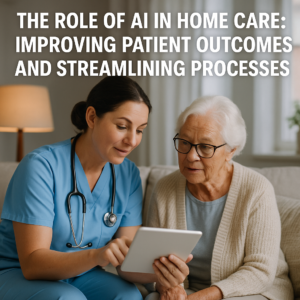Researchers at Imperial College London are launching the ZeDTech dementia network, focused on creating technologies to help individuals with dementia live independently. This initiative is part of a larger effort, backed by £6 million, to address the challenges faced by nearly one million people with dementia in the UK. With wearable sensors and a focus on affordability, the project aims to improve quality of life and tackle care inequalities.
A new initiative could change the way people with dementia live, providing them more independence through technology. Researchers at Imperial College London are spearheading one of four new Dementia Networks, dubbed the ‘ZeDTech’ network. They’re on a mission to create zero-burden, sustainable technologies aimed specifically at supporting independent living for individuals battling dementia. With funding of £6 million from the UK’s EPSRC and NIHR, this project aims to push boundaries in dementia care.
Statistics paint a daunting picture: currently, there are nearly 982,000 individuals living with dementia in the UK, and by 2040, that number is predicted to balloon to 1.4 million, according to data from the Alzheimer’s Society. Interestingly, a survey showed that a whopping 85 percent of people diagnosed with dementia would prefer to stay at home as long as possible. Partnering with the Alzheimer’s Society, the ZeDTech network seeks to make this desire a reality.
The innovative researchers are looking into developing wearable and contactless sensors to monitor health without interrupting daily routines. One intriguing method includes remote sensing using radar to track well-being. The emphasis is also on tackling care inequalities and digital exclusion, integrating machine learning as a tool for progress.
Leading this ambitious network is Professor David Sharp from Imperial’s Department of Brain Sciences, who is also the Director of the Care Research & Technology Centre. He stated, “This is a really exciting opportunity that will bring together UK scientists and partners from health and social care, industry, third sector and lived experience, to develop new technologies that will help people affected by dementia to live independently for as long as possible.”
Co-leading the ZeDTech team is Professor Tim Constandinou, who stressed the need for the vulnerable dementia population to be central in tech development. “Individuals with dementia are often vulnerable, with cognitive impairments that limit their ability to engage with technologies that become burdensome,” he pointed out. He goes on, “Our network will assemble multidisciplinary teams to develop, validate and integrate new technologies with existing dementia care, aiming to improve the quality of life of those affected.”
Other networks are forming at institutions like the University of Sheffield, Northumbria University, and Heriot-Watt University. In conclusion, EPSRC Executive Chair Professor Charlotte Deane emphasized the urgency, stating, “Dementia is a major challenge in the UK and globally. As people are living longer, the number of people living with dementia is increasing. With most people wishing to remain at home, we are investing in research that could lead to new technologies and innovations that will help keep people safe and independent.”
This is a really exciting opportunity that will bring together UK scientists and partners from health and social care, industry, third sector and lived experience, to develop new technologies that will help people affected by dementia to live independently for as long as possible.
Professor David Sharp
Individuals with dementia are often vulnerable, with cognitive impairments that limit their ability to engage with technologies that become burdensome.
Professor Tim Constandinou
Dementia is a major challenge in the UK and globally. As people are living longer, the number of people living with dementia is increasing.
Professor Charlotte Deane





